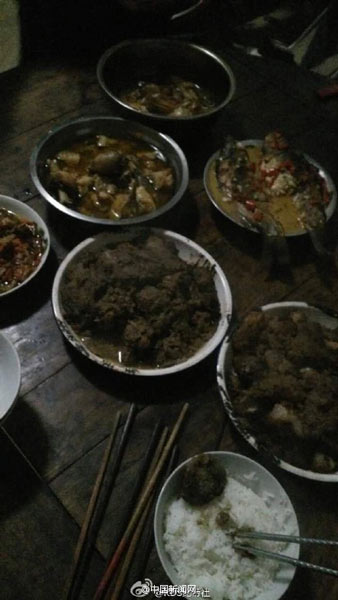
 |
|
A screenshot shows the humble food in Jiangxi province.[Photo/Weibo] |
China's netizens have been urged to avoid damaging the credibility of cyberspace after a story that went viral over the Spring Festival holiday turned out to be fabricated.
The story revolved around a 28-year-old woman from a well-off Shanghai background who claimed to have split up with her boyfriend after eating a meal at his family's home in a small village in Jiangxi province.
Her claims that she could not stand the humble food or the family's lowly home, quickly sparked online discussion about relationships between men from the countryside and metropolitan women.
Debate raged until Sunday, when a report exposed the story as a lie.
The report quoted an officer from the provincial cyberspace watchdog who said that the post was written by a non-Shanghai mother surnamed Xu.
She had never been to Jiangxi and made the post in anger following a fight with her husband about where they should spend the holidays, the report said.
Li Yuxiao, head of the Internet Management Law Research Center at Beijing University of Posts and Telecommunications, said such behavior constituted "abuse" of the Internet.
"Although these posts may not be illegal, the posters' behavior is still irresponsible," Li said.
"Such behavior causes a lot of damage to the credibility of cyberspace," he said.
Zhu Wei, deputy director of the Communication Law Center at China University of Political Science and Law, said the woman's behavior was self-promotional but thought few netizens would try to arouse the public's attention in this way.
"The Internet has the capacity for self-purification. Online discussions cleanse such non-news posts and can expose the truth," Zhu said.








